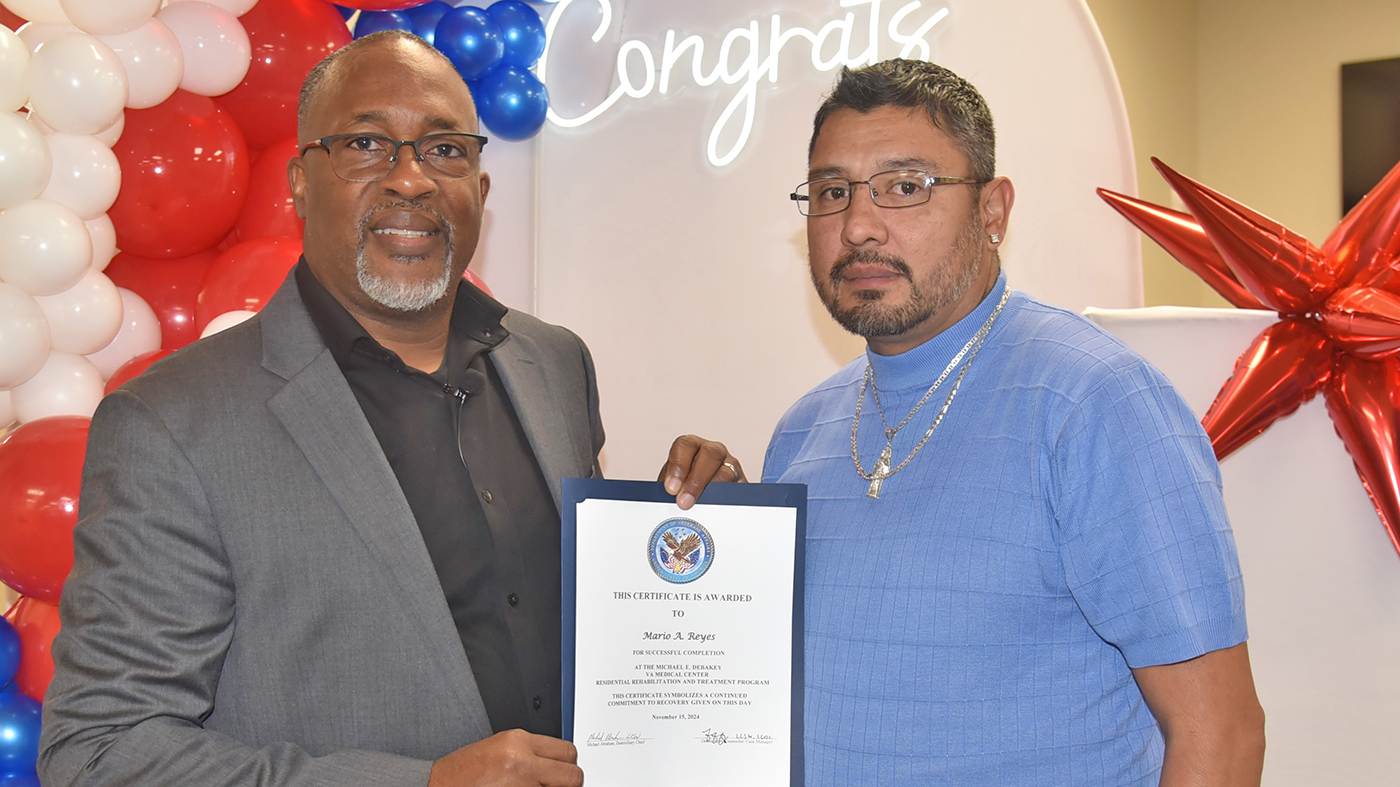The Alzheimer’s Association estimates 5.6 million Americans age 65 and older are living with Alzheimer’s dementia in 2019.
Given its importance, the Chillicothe VA Medical Center is hosting an Aging & Dementia Education Resource Fair Nov. 8 for dementia sufferers and their caregivers.
Fastest growing population
“Veterans age 65 and older are the fastest growing population served by the VA. As a result, the number of Veterans and other Americans impacted by dementia continue to grow,” said Shalagh McBride, staff psychologist for the Chillicothe VAMC Community Living Centers. “We want to help aging Veterans and their caregivers of the greater Southern Ohio region with information and access to community and VA resources.”
This year’s fair – the facility’s third – will be the largest yet.
“We will have over 30 different booths ranging from general community resources, such as the Area Agency on Aging and Job and Family Services. We’ll also have Veteran-specific community resources, such as the Ohio Veterans Home and local Veteran’s Service Organization,” McBride said.
Also scheduled are VA resources, such as Caregiver Support, Hospice and Palliative Care Services and Decedent Affairs.
“We also offer booths with access to an expert on various educational topics such as nutrition and diabetes management, suicide prevention, behavioral management in dementia, and geriatric medicine,” said McBride
Support for Caregivers
“Families are an essential component of the care of our aging Veterans. We really feel the fair is an important way to connect caregivers of Veterans and their families with the wide range of resources available to them both within VA and in the surrounding community,” McBride noted.
“Whether Veterans themselves are facing issues related to aging and want to understand what services are available to them or perhaps a Veteran is taking care of loved one with dementia, we hope that we can connect them with some valuable information and resources. We also hope that this fair is an opportunity for us to support the many caregivers of Veterans out there who need some support and access to more information and resources,” she continued.
Caring for each stage of illness
McBride stresses that the medical center and the fair provide information and services for each stage of the illness.
“Taking care of our Veterans with dementia across the progression of the disease is very important,” she said. “We want families to know that we have services that can help them take care of their loved one in the home for as long as possible and for them to be aware of what is available to them when their loved one requires more care, such as respite services, nursing home care and palliative care and hospice services.
“The Chillicothe VAMC has an excellent home-based primary care program. It supports Veterans who need specialized care in the home but may not be able to make it to medical appointments. We also have one of the largest community living centers in the VA system. It supports aging Veterans with specialized nursing care needs. That includes rehabilitation services, skilled nursing care or dementia care.”
Helpful advice: “Ask for help.”
McBride also offers a piece of advice for everyone who is touched by dementia.
“Don’t be afraid to ask for help. Asking for help is a sign of wisdom and strength. There are more resources out there available to you that you didn’t even realize might work for your situation.”
“Don’t hesitate to reach out to your local VA or VA CBOC and describe your situation to them. They may be able to identify services you may benefit from. If you aren’t a Veteran, reach out to your local area agency on aging or Alzheimer’s association. They can connect you with many different resources, as well.”
Debra Sage is a public affair specialist with VHA Communications, Digital Media.
Topics in this story
More Stories
VA and Veterans Yoga Project are working together to make more Veterans aware of the benefits of yoga while offering more classes.
Believing in better days ahead, Army Veteran Mario Reyes was among the first to graduate from Houston VA’s Domiciliary program.
Rumi’s "The Guest House" invites us to welcome each emotion as a teacher, even the unexpected ones. Listen and reflect for this week's #LiveWholeHealth practice.







It is important to promote lines of research to learn more about early diagnosis and the evolution of neurological and degenerative diseases.